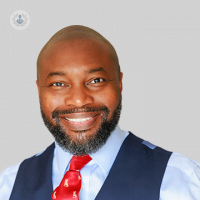5 facts about mouth cancer
Written by:Oral cancer is where a tumour develops in the lining of the mouth. It comes under the umbrella term, “cancers of the head and neck.” If a GP or dentist suspects that a patient has mouth cancer they will be referred to a specialist such as an oral and maxillofacial surgeon for more tests and treatment.

1. How common is mouth cancer?
Mouth cancer is the sixth most common cancer in the world although it is less common in the UK. Most cases occur in adults aged 50 to 74 and a little less than 7,000 people are diagnosed with the disease every year.
2. What are the symptoms of mouth cancer?
The most common symptoms of oral cancer are sore ulcers that don’t heal within several weeks, lumps in the mouth that don’t disappear, and persistent lumps in the lymph glands in the neck. There may also be pain when swallowing, unexplained weight loss, bleeding in the mouth, a loosened tooth or teeth, difficulty moving the jaw and red or white patches on the lining of the mouth.
3. Will smoking cause oral cancer?
Mouth cancers are closely linked to tobacco use although not everyone who is diagnosed with mouth cancer uses tobacco. Tobacco also makes treatment of cancer less effective and harder for the body to heal. It may also increase the risk of cancer recurring or causing another type of cancer in the future. Other causes of oral cancer include drinking alcohol combined with smoking heavily, and those who are infected with the human papilloma virus (HPV).
4. If I quit smoking now, is it enough to prevent mouth cancer?
It is never too late to quit smoking and people who stop using tobacco after years of use can significantly reduce the risk of contracting smoking related illnesses such as oral cancer. The sooner someone stops, the sooner the risk goes down.
5. What is the survival rate of mouth cancer?
The outlook for oral cancer depends on which part of the mouth is affected and where the cancer has spread to. If diagnosed early, a complete cure is possible in up to 90% of cases through surgery alone. If there are cases where the cancer is larger, there is a good chance of curing it but surgery will be followed with radiotherapy, and maybe even chemotherapy. On average, around 60% of people with oral cancer will live at least five years after diagnosis and many much longer.


